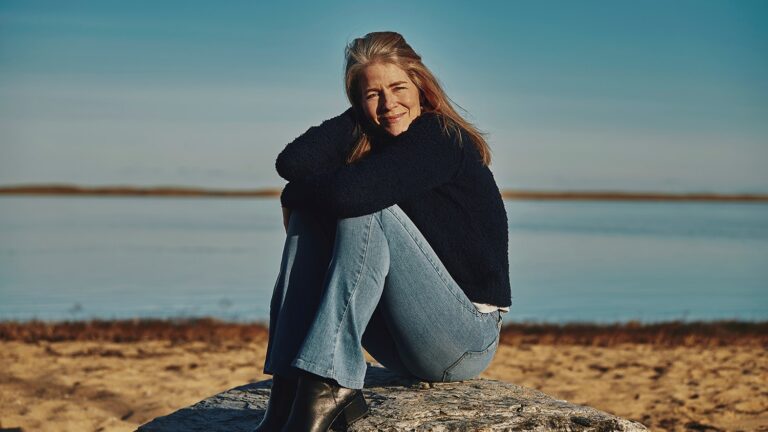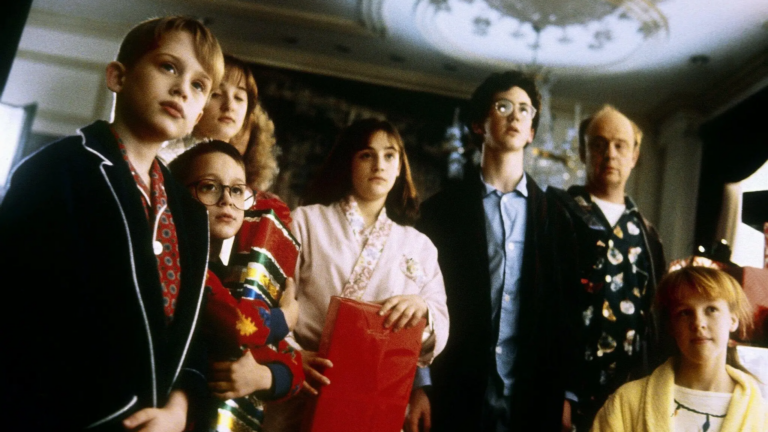📚 Stay up-to-date on the Book Club
Catch up on the latest Boston.com Book Club pick and join the virtual author discussions.

With her new novel, Little Monsters,” Adrienne Brodeur writes what she knows: family secrets and drama on Cape Cod.
Like many, I devoured her juicy bestselling 2019 memoir “Wild Game: My Mother, Her Lover, and Me.” (The summer Brodeur was 14, her mom divulged a secret: She was having an affair with her husband’s best friend. It explodes from there.)
Brodeur — who splits her time between Cambridge and Orleans — returns to New England in her new novel, and this time, has unwittingly created Cape Cod’s version of a “Succession”-like family drama with “Little Monsters.”
A curmudgeon father who’s made a name for himself (in this case studying whales.) A missing mother figure. Children who compete for dad’s love. A sister who leans feminist left, and a wealthy conservative-leaning brother. The daughter wants what she believes is owed her (in this case: a small artists’ beach house) and the brother with political aspirations. The brother, named Ken, even unveils an upscale senior living center much like Kendall Roy did with Living+ in the HBO juggernaut.
When I mention that last bit to Brodeur she’s audibly spooked. (“What!?”) Not only has she never seen the HBO show, she rarely watches TV.
Suffice it to say, while “Little Monsters” doesn’t have to do with the uber-rich, it might fill the Roy-sized hole in your heart. The nutshell:
Ken and Abby Gardner lost their mother when Abby was born. Their father, Adam, a brilliant oceanographer, raised them mostly on his own in Wellfleet. The family dynamics are complicated, to say the least.

Set in the summer of 2016, just before Adam’s 70th bash, there’s plenty of political drama to inform us about the characters. Adam is a chauvinist curmudgeon who wanted Bernie but is so unsure about a woman president that he’s now an undecided voter. Abby, who studied at RISD, now works as an artist, while Ken is a successful businessman who “married into an old Boston Brahmin family,” and has Republican political dreams. Then there’s Steph, who lives with her wife in South Boston. When she learns Adam is her biological father, she sets out to meet the Gardners.
Of course, the Cape is featured prominently, towns described as only a local would know them, along with windswept dunes, sandbars, and gray ocean. Global warming commentary is there, too: Ken obsessively measures the beach erosion of his waterfront property.
“My love of Cape Cod is in there,” Brodeur told me. At times serving as “a metaphor for fragility—it’s such an incredible spit of land, but it changes hourly — tides move, sandbars come up. Each year it changes, and at some point in the not-too-distant future, that sandbar is not going to be there.”
I caught up with Brodeur ahead of a series of local events. The author will be at Harvard Book Store on July 12 and in a number of Massachusetts and Rhode Island towns in the following weeks. We discussed the biblical inspiration behind the new novel, writing messy characters, and more.
Some responses have been edited for length or clarity.
Yes. Anyone who’s read “Wild Game” knows that I have a fascination with family secrets. It was really just a delight to come up with a fictional universe as opposed to mining my own territory.
I got sent home from the “Wild Game” book tour when COVID struck, I was ruminating about Cape Cod — that’s where we went during the pandemic. I also was thinking about 2016 — the uneasy mood of the country seemed riveting to me. In the book, I was trying to evoke the feeling of that anxious time without confronting it directly — I didn’t want this to be a book about the election.
[I was also thinking about] siblings — how people in the same family can have such different experiences and outlooks on the world. I have my own sibling; I have a lot of step-siblings. Each of my parents had a half-sibling that they didn’t know about.
So it was all swirling in my subconscious. The first thing I did was look to the classic sibling rivalry story of Cain and Abel. But it’s like three sentences — there’s no meat on the bones. What it gave me was this underlying structure of gifts to the father. Gifts almost always reveal more about the giver than the receiver.
Another thing I was interested in exploring was: Why is it hard for women to have power? There was something about this family imploding during this cultural implosion.
Well, yeah. I mean Cain, Ken; Abel, Abby. I was trying not to be too on-the-nose. You’re actually the very first person who’s asked me that, which [is a relief because I thought] “Is this too much?” But they so quickly become their own people.
Both had half-siblings they discovered in young adulthood. Very different situations from the one portrayed in this book. In this lovely way, Steph is an outsider. She’s different enough to see — maybe on some level, a stand-in for the reader — this family with fresh eyes. It was really nice to have this character who’s like, Oh Jesus. [laughs]
We all understand the rules of our own families; we don’t tend to question them. Steph’s like: Do we have to? It was interesting for Abby to hear that, that we can form our own families, too.
I remember saying with such great pride to my editor, “See? I did it. I was all about the mom stuff — now I’ve built a family where there’s no mother!” She dead-panned: “Adrienne, have you noticed that the mother haunts every character?” I’m like, “Oh. I guess I’m maybe not quite so past it all.”
It’s funny — he’s the character people have the strongest reactions to. I’ve heard a lot of, “I can’t stand Ken.” I actually feel a ton of compassion for Ken. He’s clearly the most wounded character. Like any other animal, we’re at our most aggressive when we’re wounded, and he is clearly that person. He lost his mom. He had an erratic father. The poor guy cannot get out of his own way.
But I hope people feel that there’s some hope for Ken in the end. I have hope for Ken.
I have not watched “Succession,” so clearly I must. I don’t watch TV. This is not to sound pretentious — I want to watch more TV. I did see “Ted Lasso,” but it’s the thing I can’t seem to shoehorn into my life. But I have heard for the longest time that I need to watch [“Succession.”] But it’s all really super, super wealth, right?
What?! I did not know that. Oh, my God [laughs].
OK, you’re the first person who’s told me that. That’s weird. Now I’m a little freaked out. Oh my God. Had I seen it, I would have changed his name, by the way.
No one has mentioned that to me before. You are the first person. I swear on a stack of Bibles, I’ve never heard that before.
That’s really funny [laughs]. So going back to Adam — he’s bipolar. You mentioned in “Wild Game” you had depression. Was anything sparked from [your experience?]
No, really not. Adam’s a cycler, who crashes. I do have some familiarity with bipolar disorder simply because I have some people in my family who have it.
[But] when I was thinking about Adam, about his desire to stay relevant — which I do think is a real thing for people as they get old, I certainly saw it with my mother — it’s hard, when you’ve been a person of the world, and then no one listens to you anymore. Adam is terrified of that. He really wants to make this discovery [about how whales communicate] and he feels this excitement when he [goes off his medication.]
Development is development and until you and I are sitting in a dark theater, I don’t know what to believe, but it seems to be going well. So it was first with Kelly Freeman Craig, who I adored, who had to step off it to do “Are you there God, it’s me, Margaret” because that got the green-light first. So then they re-upped the option. Nick Hornby just wrote the screenplay, which is amazing.
It’s huge, but right now there’s a strike, so everything’s been shut down, the option’s on hold, and who knows? I mean, I have my fingers and toes crossed, but we’ll see.
[I]t’s what [Adam] used to call his children. But I think the deeper meaning is all of monsters out there — the stuff in our minds and the ocean, but also the micro-aggressions and abuses of power.
Lauren Daley can be reached at [email protected]. She tweets @laurendaley1.
Catch up on the latest Boston.com Book Club pick and join the virtual author discussions.

Stay up to date with everything Boston. Receive the latest news and breaking updates, straight from our newsroom to your inbox.
Conversation
This discussion has ended. Please join elsewhere on Boston.com